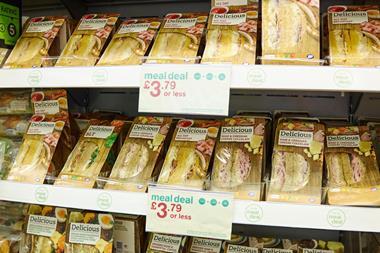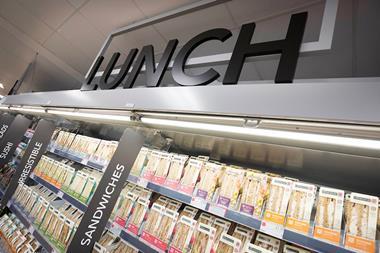
The timing of the consultation on the restriction of the promotion of food and drink was extraordinary. Rushed out on a Friday evening, just before one of the most significant parliamentary votes in modern times while most food businesses are facing into the abyss of a no-deal Brexit. It looked like the Department of Health is out of touch with economic realities. This consultation – already late – should have waited until the uncertainty we face is resolved.
Timing and the economy aside, this is a bizarre and sometimes contradictory policy that is unlikely to make an impact on obesity.
Food and drink companies have long been committed to working with the government to improve the nation’s diet. They have been proactive in finding ways to reduce fat, salt and sugar in their products and have been limiting portion sizes. Over five years FDF members alone have reduced calories in the average basket by 5.5% and sugars by 12.1%.
Changing recipes to reduce fat, salt and sugar is not simple. Each ingredient can play multiple roles in food, contributing to taste, colour, smell, texture and food safety. Not only is the process complex, but it’s also time and resource-heavy, and comes at a time when companies are facing a range of unprecedented challenges.
Opinion: Promotions consultation reflects government chaos, not commitment
Despite our ongoing commitment, government seems determined not to give industry time to make a difference, and instead to focus on measure after measure that puts burdens on it. This promotions consultation is just the latest example.
Food and drink promotions in supermarkets are clearly aimed at, and used by, adults. Children almost never purchase food and drink in supermarkets. It should form no part of a strategy that government claims is aimed at children. Promoting food and drink is a critical commercial freedom. It underpins the healthy, vibrant and innovative food and drink market that UK shoppers love. Promotions allow new products and brands to win space on supermarket shelves, and get noticed by customers. Limiting the effectiveness of these mechanisms stifles innovation.
Promotions also play a role in making food more affordable. In fact, government data shows that, on average, people would have to spend £634 a year more for the same food if promotions were banned.
For these reasons we fundamentally oppose the restrictions proposed. They will work against the key reformulation work companies have been asked to undertake, making it more difficult for reformulated products to be brought to the attention of shoppers. Indeed, the government has deliberately focused on the same products from which they have asked companies to reduce sugar and energy by 20%. Ironically, one of the ways Public Health England has encouraged companies to achieve this ambitious target is to use marketing and promotions to encourage people to try alternative products.
In depth: Will HFSS promotion bans lead to soaring business costs?
If you restrict the use of promotions to launch new products, it becomes very difficult for those products to be noticed by consumers and secure a foothold in the market. This demonstrates a clear lack of joined-up government thinking – they are risking the success of their own sugar and energy reduction programmes.
Moving away from blanket approaches to targeted intervention has been strongly supported by health secretary Matt Hancock, and yet here we are again with another set of population-based measures.
It is time for government to get behind a holistic approach, with specific measures that support individuals, families and communities most affected by obesity, instead of pursuing headline-chasing policies that affect everyone. The industry is playing its part and wants to continue to do so, but partnership must be a two-way street.
Tim Rycroft is chief operating officer of the Food & Drink Federation



















No comments yet